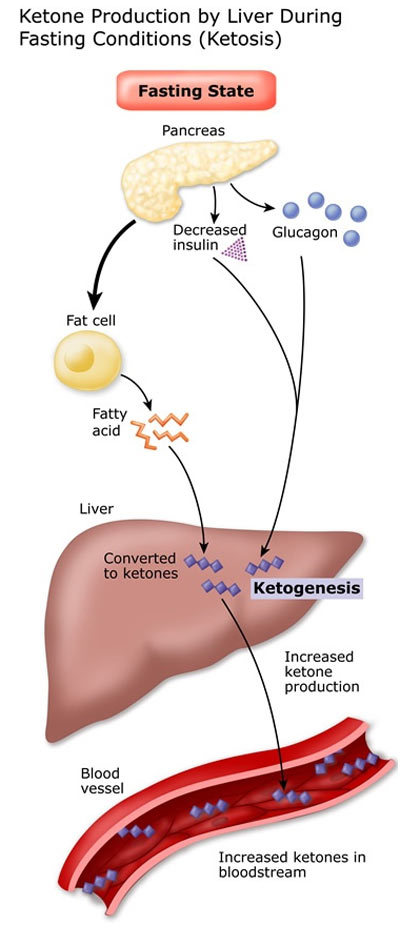The 6 Worst Pieces of Weight-Loss Advice Nutritionists Have Ever Heard
This article was written by Caroline Praderio and provided by our partners at Prevention.
When it comes to bad weight loss recommendations, dietitians have heard it all from their clients. Here are the tips they wish you'd stop believing, plus some proven strategies to use instead. (Join Prevention's 21-Day Challenge to lose weight and feel amazing by summer!)
1. "Stop eating gluten." We've said this before, but let's say it again. Unless you have celiac disease or non-celiac gluten sensitivity, there's no reason to eliminate gluten from your diet, and there's no evidence that doing so will help you shed pounds. "Going gluten-free makes eating more expensive, takes good-tasting bread and pizza off the menu, and doesn't guarantee a lower calorie intake," says Georgie Fear, R.D., author of Lean Habits for Lifelong Weight Loss. "Even if going gluten-free keeps you away from pasta and bread, there are plenty of gluten-free goodies like cookies and cake that sneak all those calories back into your diet anyway." Instead, keep enjoying gluten-containing foods in moderation, like everything else.
RELATED: 9 Proven Ways To Lose Stubborn Belly Fat
2. "It's all about exercise." You might have heard the phrase you can't outrun a bad diet—and it's true. "I've had clients place exercise on a pedestal above diet and other lifestyle behaviors," says Devon Golem, Ph.D., R.D., director of the Didactic Program in Dietetics at New Mexico State University. "Truth is, scientific evidence reveals that diet alone is more effective than exercise alone when it comes to short-term weight loss. And for long-term weight loss, you need a combination of diet, exercise, and other lifestyle changes." (Here are 10 tips for changing your lifestyle to maintain your weight loss.)
3. "As long as it's healthy, you don't have to watch how much you eat." We know, we know—nobody likes breaking out the measuring cups and spoons. But portions really do matter, especially when it comes to calorie-dense fats, says Lisa Young, Ph.D., R.D., nutrition professor at New York University and author of The Portion Teller. "I have had clients who have actually gained weight by thinking this way," she says. "Nuts, avocados, and olive oil are healthy fats—but you have to watch your portions!" Luckily, we've got an easy primer on proper serving sizes right here.
RELATED: 15 Teeny Tiny Changes To Lose Weight Faster
4. "Taking a cheat day will keep your metabolism up." Sorry, cheat day lovers: The big increase in calories you eat on a cheat day will probably be stored as body fat, says Fear. "The best way to keep your metabolism up and lose fat is not to down a whole pizza on Sunday, but to eat some carbs daily, strength train several times a week, get enough sleep, and eat within your calorie needs—every day of the week," she says. (Here's a calculator to help you determine how many calories you need to eat each day.)
5. "Diet and exercise are the only things you need to worry about." Sleep, stress, and environment all play a huge role in your weight-loss efforts. "The link between sleep and weight is undeniable. The less we sleep, the more we weigh," says Golem. "Stress is another factor that needs to be considered, especially if food or alcohol is being used as a calming strategy. Chronic stress influences appetite-regulating hormones and affects hormones that regulate the way your body burns calories." (Try these 10 simple sleep remedies and 6 stress-busting strategies to keep both issues at bay.)
It also pays to consider your environment, Golem explains. Research shows that people who keep unhealthy foods like soda or cookies on the kitchen counter can weigh up to 20 pounds more than those who don't. So take a look at what kinds of foods you're regularly stocking at home and at work. (And pick up these healthy pantry staples instead on your next trip to the grocery store.)
RELATED: 8 Things That Happen When You Finally Stop Drinking Diet Soda
6. "Say buh-bye to all of the unhealthy food in your life." Go ahead and break out your happy dance. You don't need to cut out fries or ice cream (or whatever "bad for you" foods you love) completely. "There's room for fatty, sugary, and salty foods, as well as alcohol," says Golem. "It's a matter of eating well the majority of the time." Besides, making your diet too strict will likely backfire, leading to deprivation and bingeing. How can you actually achieve moderation? "Setting boundaries,"says Golem. "For example, I love desserts, but they're one of my trigger foods—I have a hard time eating a proper serving size when they are around. So my boundaries for desserts are that I eat a single portion just once a week—on Friday nights."
-
What It Took for Me to Lose 120 Pounds in Just Over a Year
The LifestyleBefore: 264 lbsAfter: 144 lbsAfter losing her mom to leuk
-
Are you a mindless eater?
-
Sweat more to burn more calories
-
How to lose love handles fast
-
Top 10 Weight Loss Diet Drops Available In India
The thin, curvy silhouettes of celebrities tend to tempt overweight an
-
Easy ways to turn meat dishes vegetarian
- DON'T MISS
- Adopt a furry friend to drop weight and shape up
- This Weight-Loss Tracking Method Is More Productive (and Less Crazy-Making) Than a Scale
- 9 Easy Ways to Crush Your Food Cravings
- Egg Diet Plan – What Is It And What Are Its Pros And Cons?
- Eat these healthy munchies to boost your mood
- BEWARE! Dont be fooled by these diet-wrecking healthy foods
- That time of the year again
- A Mother and Daughter Decided to Lose Weight Together—And Their Results Are Amazing!
- Prevent weight gain by having soups
- 7 Effective ways to create healthy habits




